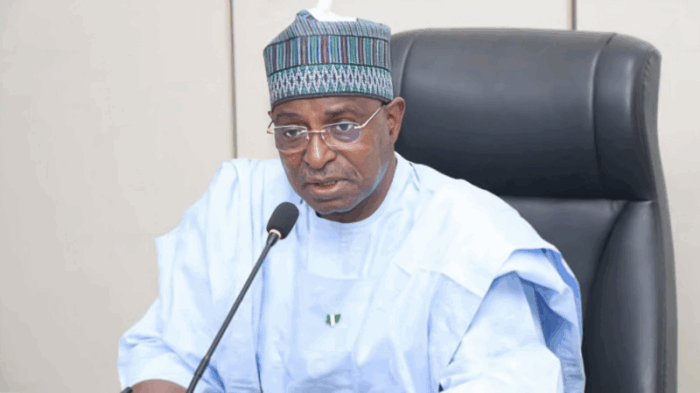FG launches national livestock council to unlock $74bn industry potential

The Federal Government on Monday launched the National Council on Livestock Development (NCLD), a new policy and coordination body expected to drive sweeping reforms and unlock billions of dollars in investment opportunities across Nigeria’s livestock economy.
The move, unveiled at the maiden Council meeting in Yola, signals what officials describe as the most ambitious transformation of Nigeria’s livestock sector in decades—anchored on modernisation, commercialisation, value-chain expansion and conflict reduction.
Idi Mukhtar Maiha, minister of Livestock Development, said the administration is pursuing a plan to grow the livestock industry from $32 billion to $74 billion within five years under the National Livestock Growth Acceleration Strategy (NL-GAS), backed by the National Livestock Master Plan.
Maiha disclosed that the government is in advanced talks with multinational and indigenous companies—Arla, Nestlé, Danone, Promasidor, FrieslandCampina WAMCO, Integrated Dairies, L&Z Farms, among others—seeking to invest in dairy, beef, fodder, breeding, poultry, piggery and traceability systems.
He noted that development partners are already funding dairy pilots, climate-smart livestock systems and peacebuilding projects, with more expressing interest as the new council creates a unified policy direction.
The Minister listed several milestones achieved within the ministry’s first year, which include Eight new pasture species registered, the first in nearly 50 years, completion of the National Strategy on Animal Genetic Resources, guiding national breed improvement and deployment of solar-powered vaccine cold rooms, boreholes, dips, milk collection centres and slaughter slabs under the L-PRES programme.
Others he said include the rehabilitation of laboratories at the National Veterinary Research Institute (NVRI), Vom, which is expanding vaccine output from 120 million to 850 million doses annually, and commissioning of the Wase Livestock Village, a model for upgrading 417 national grazing reserves into modern ranch-based livestock settlements equipped with schools, clinics, water systems, pasture fields and processing hubs.
Maiha emphasised that modernising grazing reserves and promoting ranching are central to ending recurring farmer–herder conflicts and building commercially viable livestock communities.
Nearly half of Nigeria’s states now have dedicated livestock ministries or agencies.
In their goodwill messages, Musa Mustapha and Tasir Raji, the chairmen of the Senate and House Committees on Livestock pledged strong legislative support, including new bills to strengthen value chains, regulate land use, advance ranching reforms and boost investor confidence.
Raji highlighted Nigeria’s production deficit despite its large animal population—58m cattle, 134m goats, 60m sheep, 60m pigs and 563m poultry—noting that the country still imports 65% of its milk and spends billions annually on livestock products that could be produced locally.
He said the Council must produce actionable strategies to bridge Nigeria’s nutritional gap, citing low per-capita consumption levels compared with global averages.
Chinyere Akujobi, permanent secretary to the ministry, and chairman of the new council, said the NCLD will become the apex policy and coordination body for the sector—harmonising federal and state actions, mobilising private capital and strengthening partnerships with investors and development agencies.
She said the initiative aligns with President Bola Ahmed Tinubu’s Renewed Hope Agenda, emphasising food security, economic diversification, value addition, job creation and export growth.
The Council’s work will revolve around four major pillars Genetic improvement, Rehabilitation of grazing reserves, Expansion of all value chains, Conflict-to-commerce initiatives aimed at reducing insecurity in livestock-producing regions
Officials say the reforms will attract large-scale investment, reduce Nigeria’s $1.5bn annual dairy import bill, create millions of jobs, expand rural incomes and boost Nigeria’s competitiveness in regional livestock markets.
Minister Maiha concluded that decisions taken in Yola will “shape Nigeria’s livestock economy for generations,” urging stakeholders to commit to a unified national agenda.
Attahiru Jega, senior special assistant to the President on Livestock Development presented the keynote address.




